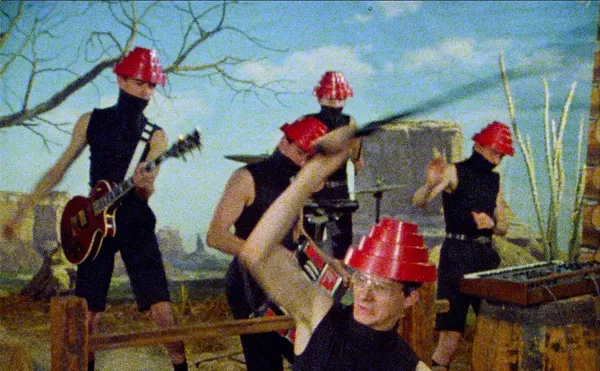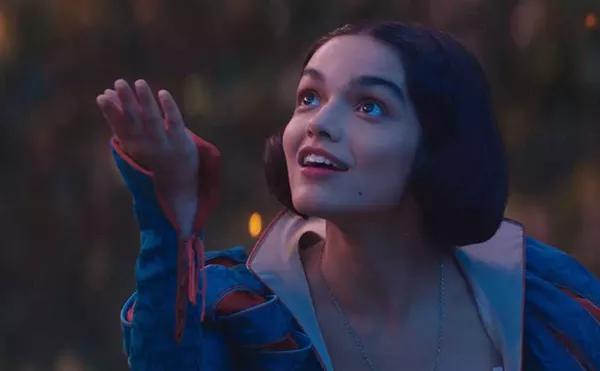Despite what Wagner and Bugs Bunny might think, Vikings never wore horns. They did however concoct a dramatic, vast and intertwining web of poetic stories filled with greedy gods, alchemical dwarves, real and imagined heroes, and magical dragon’s blood.
Originally told around ancient Icelandic fires on harsh winter evenings, these stories will be sung once again this Wednesday and Thursday at Ann Arbor’s Lydia Mendelssohn Theater. It happens during the world premiere of Edda: Viking Tales of Revenge, Lust and Family Values, a performance collaboration between the medieval music ensemble Sequentia and innovative visual director Ping Chong. The Edda is a collection of Icelandic poetic stories composed around the ninth or 10th century, many of which took place near present-day Germany and France. Its mythology has permeated the Nordic and Scandinavian countries, as well as influencing Europeans such as Richard Wagner whose Ring of the Niebelungen drew heavily from the Edda.
Sequentia has earned an international reputation of excellence for its reconstruction of medieval musical traditions through virtuoso vocals and instrumentation combined with intensive research. Sequentia’s director, Benjamin Bagby, had been studying Icelandic folk traditions for years when he was approached with a new opportunity.
Ping Chong recalls, “Ben Bagby had done a solo performance of Beowulf at the Lincoln Center Festival which was very, very successful. Lincoln Center asked if there was anything else he wanted to do, and the Icelandic sagas has been something he has already been working on for some time.”
The Lincoln Center Festival 2001 and the University of Michigan’s University Musical Society co-commissioned Edda: Viking Tales, teaming up Bagby’s brainchild with Chong’s innovative, physical theater direction and use of space.
Out of the darkness, voices emerge, as do the faces of the story-singers they emanate from, seeming to float on silent, invisible boats toward the audience and then away again, as the story peaks and ebbs. In the story of the Rhinegold, the gods, out of jealousy and greed, have stolen the dwarves’ gold. The dwarves put a curse on the gold, triggering a chain of death and misery and many stories around the fire. But instead of arranging the performers into a traditional bardic semicircle, Chong has placed each Sequentia musician and singer on conveyed platforms, so that they slowly move straight to the front or back of the stage, parallel to the story’s progression, as if moved by a meticulous, godly hand. Chong’s staging has created an otherworld, emitting a beauty and desolation that complement the strange, guttural trills from a time long gone.
“I want the audience to think about greed, the curse of the gold, and what does that have to do with our world today. Greed is a human passion. That’s the link with the past,” says the director.
Although reminiscent of other medieval music, the reconstructed ancient Icelandic songs are stark and mathematical, with linear harmonies carrying every voice and instrument on a different lyric plane that mirrors each similarity and variation. The sounds and dramatic intonations of this grim saga are accentuated by Chong’s gestural direction of Sequentia, through the use of sporadic hand and arm gesticulations pulled straight out of a German expressionist woodcut.
And perhaps even more striking than the piercing shrill of the delicate swan-bone flute is the appearance of the shaman Seeress, an androgynous, blue prophetess who begins, divides and finishes the tale. She floats across the stage speaking only in her language of hands, a heightened version of American Sign Language with suggestions of Chinese opera, developed specifically for this performance.
Together, Sequentia’s re-created music and Chong’s staging for Edda tend to give each element its own space — like the platforms they sit on, they each have their time and attention, effecting an intensely intimate, yet alien performance about familiar and eternal desires.
Anita Schmaltz writes about theater and performance for the Metro Times. E-mail her at [email protected]





